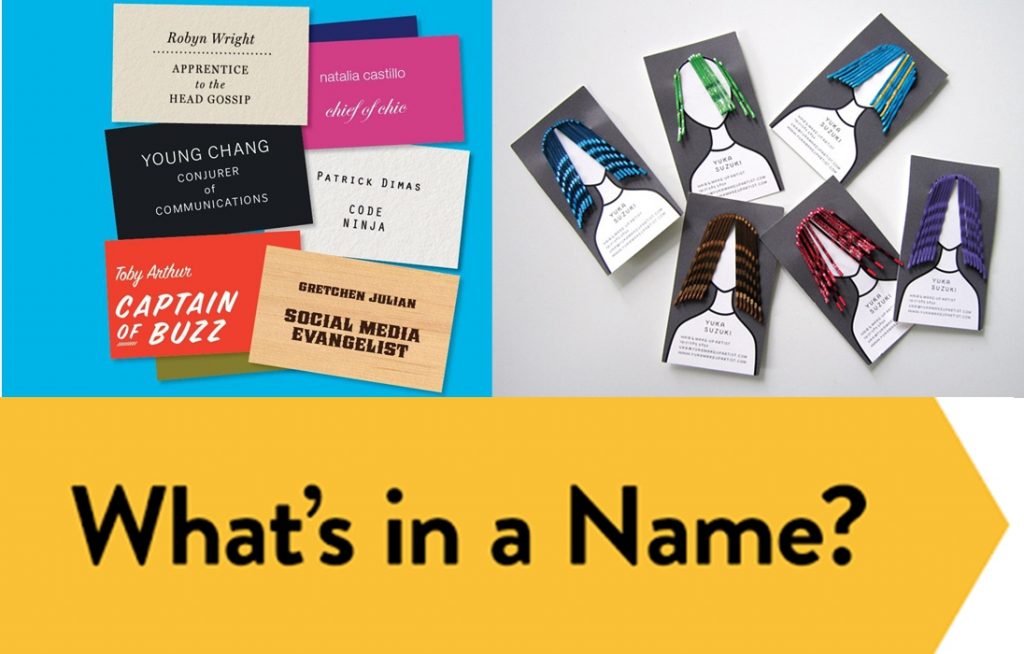Do unusual titles really make a difference or can they place things out of context, leaving others scouting for details about the role?
Matrix Group addresses its CEO Joanna Pineda as the ‘chief troublemaker’. Mindtree’s Subroto Bagchi is the ‘chief gardener’ or traditionally the chief operating officer. He is called the gardener as he is the one responsible for building the organisation and nurturing it towards growth. Similarly, there is no dearth of fancy job titles these days – some elusive, some meaningful enough – yet bewildering in most cases.
From chief happiness officer (CEO or CHRO), fairy godmother (CEO), time ninja (HR administrator) and digital prophet (digital trends expert), to director of first impressions (receptionist), there are all sorts of titles that can leave one guessing the associated job role. However, the question is whether such titles really make a difference or can place things out of context, leaving others scouting for details about the role. HRKatha spoke to a few leaders from the industry and here’s what they feel about quirky titles.“It is all about innovating on behalf of the customer. For us, it is extremely important to know the pulse of the customer and innovate in line with that.”
Raj RaghavanRaj Raghavan, head, human resources, Asia Pacific Region at Amazon shares that it is important for organisations to understand what they stand for. For him and for Amazon, more than the external facing job titles, what is really important is being customer obsessed and working backwards to strategize everything that matters accordingly. “It is all about innovating on behalf of the customer. For us, it is extremely important to know the pulse of the customer and innovate in line with that,” he says.
Fancy job titles – however attractive – don’t always work. Geethaa Ghaneckar, director, HR, Raymond believes that if placed out of context, such titles can have a reverse impact. “Although titles may not necessarily motivate people, if a title succeeds in delivering a simple message that reflects the spirit of the job role and speaks about the company’s culture, it may be relevant enough,” she adds.
In fact, many larger organisations these days retain creative titles only for internal usage and motivation, while some have even done away with them. However, such titles have a bigger following among the start-ups and young IT firms.

Ghaneckar explains that it makes more sense for organisations with a delayered structure to innovate with titles. For organisations with a millennial high-energy workforce or for start-ups, interesting titles may be a way to attract talent. On the contrary, studies have suggested that at times confusing titles may put off potential talent.
“Although titles may not necessarily motivate people, if a title succeeds in delivering a simple message that reflects the spirit of the job role and speaks about the company’s culture, it may be relevant enough.”
Geethaa Ghaneckar
An Indeed.com research, based on search terms entered on its site, suggests that people search for roles that match their skills, not their values. So, unless the job title communicates at least something about the specifics of the role, recruiters will end up putting off potential recruits.
At the same time, for some organisations, quirky titles may work as a talent retention strategy helping people bond better and engage meaningfully in the workplace. “That is possible if the title entails the soul of the job role and brings it to life,” says Rohit Kumar, HR director (CHRO), Kellogg India. He further shares that titles have to be backed by what one brings to the table – the skills and capabilities.
“Some titles can create an enigma around the role, but while deciding on titles organisations need to beware that they reflect the skill sets required for the role” says Kumar.
“Some titles can create an enigma around the role, but while deciding on titles organisations need to beware that they reflect the skill sets required for the role.”
Rohit Kumar
Creative, eye-catching titles can appeal to youngsters as they provide them their much sought-after individuality. Adding to the list of benefits these titles offer, Ghaneckar says that at times an unusual title may help one grab attention, raising curiosities around the same. “It can be a great conversation starter,” she says.
Titles such as Buzz Ambassador or the Resinator may sound elusive but may be some people’s pride. Whether or not they make sense, is a debate that is tough to conclude. However, industry experts unanimously believe that if in line with the job role and one’s expectations from it, such titles may work fine. Otherwise – what’s in a name!



